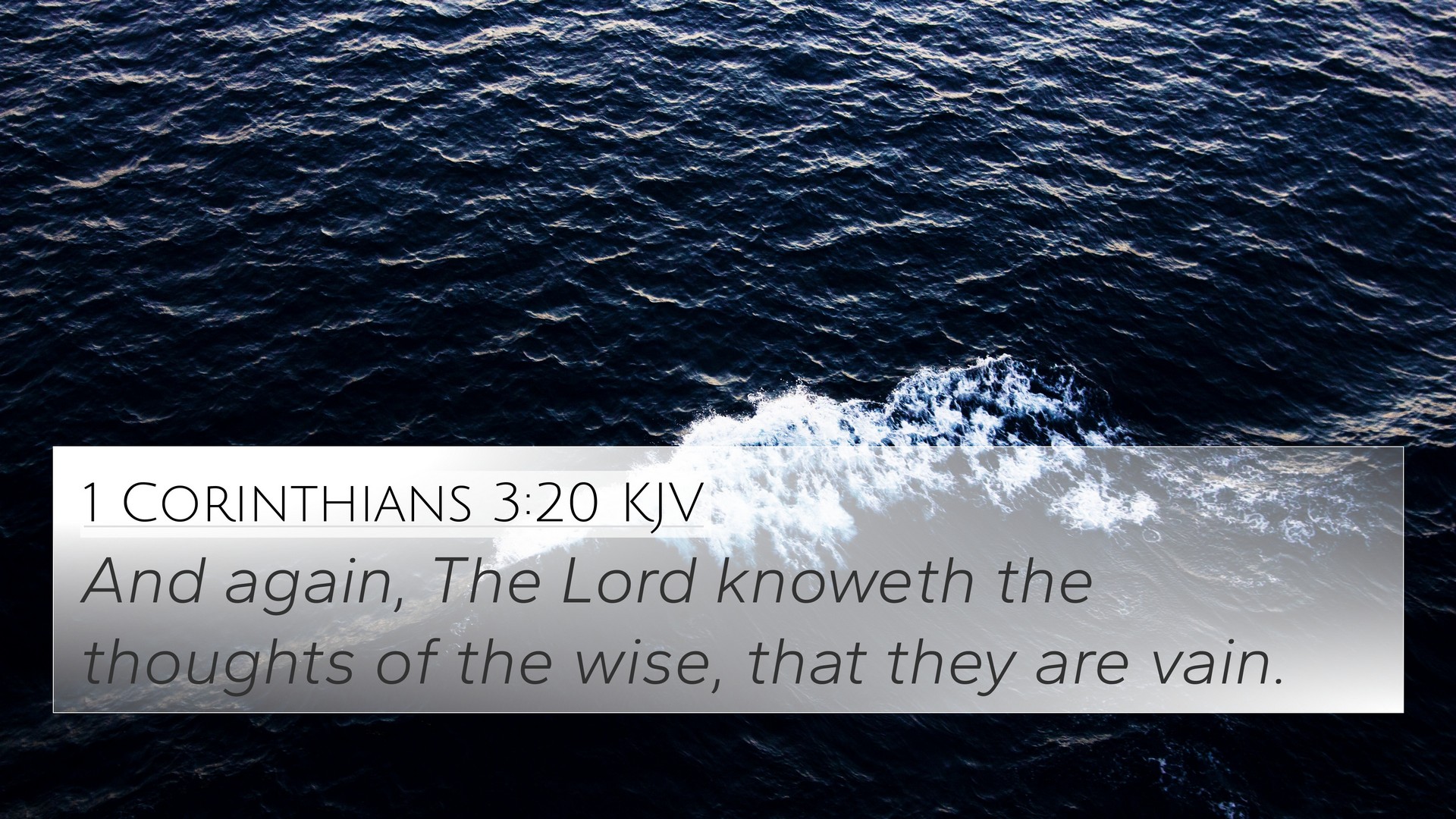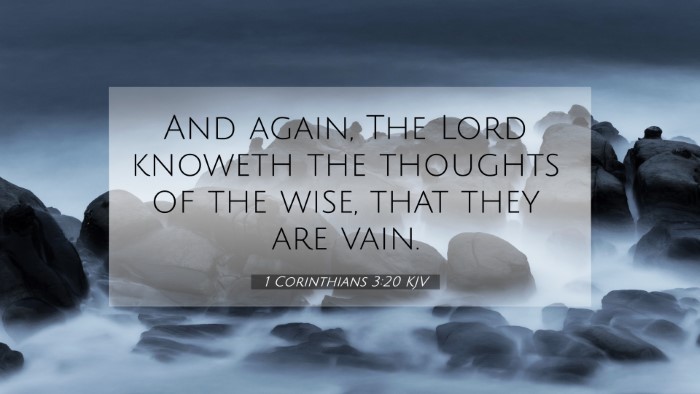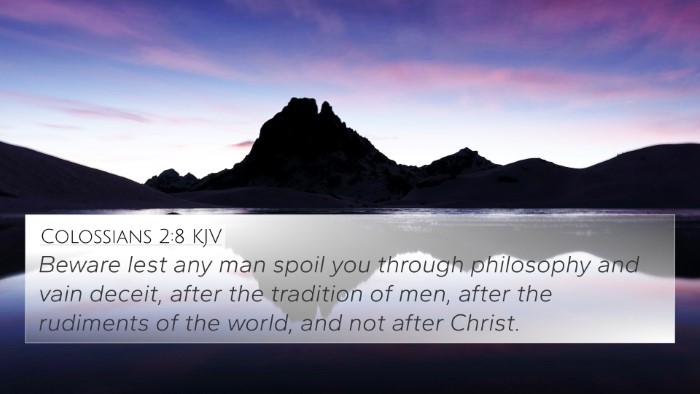Understanding 1 Corinthians 3:20
Bible Verse: 1 Corinthians 3:20
This verse states: “And again, The Lord knoweth the thoughts of the wise, that they are vain.”
The apostle Paul continues in this chapter to emphasize the futility of human wisdom when contrasted with the wisdom of God. Let's delve into the summary meanings derived from public domain commentaries.
Summary of Insights
Paul’s Warning Against Pride
Matthew Henry: Paul warns the Corinthian church against the pride associated with human wisdom. Those who consider themselves wise in their own understanding should recognize their thoughts are ultimately futile in the grand scheme of God's plans.
Albert Barnes: This passage reminds believers that the wisdom of this world is ultimately worthless in God's sight. By recognizing its vanity, Christians are encouraged to seek a deeper comprehension of divine truth rather than rely solely on human reasoning.
Adam Clarke: Clarke points out that the phrase "The Lord knoweth the thoughts of the wise" emphasizes the omniscience of God. He knows the intentions and understandings of those who consider themselves learned, revealing that their intellectualism does not impress Him.
The Theme of Divine Wisdom vs. Human Wisdom
- The contrast between divine wisdom and earthly knowledge is a recurring theme in the Bible.
- This verse echoes sentiments found in Proverbs 14:12 which states, "There is a way that seemeth right unto a man, but the end thereof are the ways of death."
- In James 3:15, we learn about "earthly, sensual, devilish" wisdom that leads to confusion.
Bible Cross References
This verse connects with several other scripture passages that explore similar themes:
- Job 5:13 - "He taketh the wise in their own craftiness."
- Psalms 94:11 - "The LORD knoweth the thoughts of man, that they are vanity."
- Isaiah 29:14 - "The wisdom of their wise men shall perish, and the understanding of their prudent men shall be hid."
- 1 Corinthians 1:19 - "For it is written, I will destroy the wisdom of the wise, and will bring to nothing the understanding of the prudent."
- Romans 1:22 - "Professing themselves to be wise, they became fools."
- Proverbs 3:7 - "Be not wise in thine own eyes: fear the LORD, and depart from evil."
- Colossians 2:8 - "Beware lest any man spoil you through philosophy and vain deceit, after the tradition of men, after the rudiments of the world, and not after Christ."
Applications for Today
The insights from this verse remind us to be cautious of placing too much confidence in our own intellectual abilities. We are urged to seek wisdom from God, who knows our thoughts and intentions completely.
Practical Steps for Seeking Godly Wisdom
- Study Scripture: Regular Bible study using tools for Bible cross-referencing can help uncover deeper truths.
- Prayer: Seek God's guidance in understanding His Word through prayer before and after study.
- Community: Engage in discussions with fellow believers to gain insights and understand different perspectives.
- Reflect: Meditate on how this understanding influences your daily life and choices.
Conclusion
1 Corinthians 3:20 serves as a powerful reminder of the limitations of human wisdom and the infinite understanding of our Creator. Through cross-referencing this verse with others, believers can deepen their understanding of scripture and recognize their need for divine wisdom over earthly knowledge.







